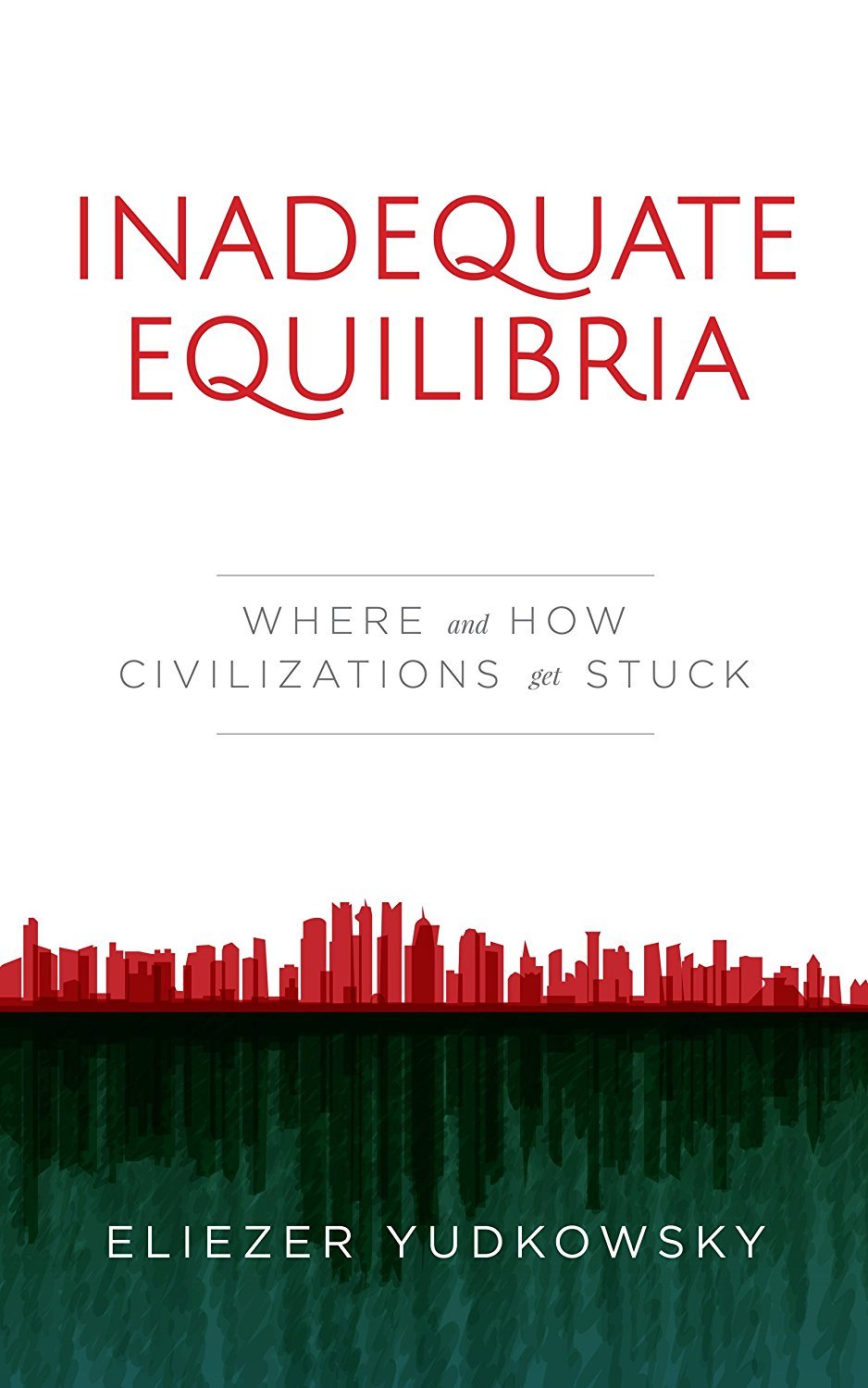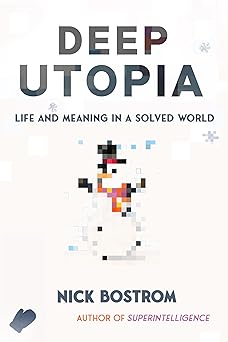
Inadequate Equilibria: Where and How Civilizations Get Stuck
Book Description
Civilizations rise and fall, yet many get trapped in a cycle of stagnation, unable to break free from inadequate equilibria. Eliezer Yudkowsky explores the hidden forces that keep societies tethered to dysfunctional systems, revealing the startling implications for our future. With piercing clarity, he uncovers the dynamics of human decision-making, innovation, and social norms that often lead to complacency and decay. As cultures grapple with their limitations, the question looms: can humanity unlock the potential for extraordinary progress, or are we destined to linger in mediocrity? The answers may change everything.
Quick Book Summary
In "Inadequate Equilibria," Eliezer Yudkowsky examines why societies and institutions often become trapped in suboptimal systems that persist despite better alternatives. He delves into the limitations of decentralized decision-making, the prevalence of misaligned incentives, and the cognitive biases that prevent individuals and groups from recognizing and implementing more effective solutions. By analyzing why experts and societal structures sometimes fail to self-correct, Yudkowsky challenges the widespread assumption that progress is inevitable. He explores scenarios where finding improvements is possible, yet invisible barriers prevent collective advancement. The book offers readers a framework to critically assess the confidence they place in established systems, and encourages an active search for places where radical change is possible. Ultimately, Yudkowsky leaves us questioning the boundaries of human potential—and what it takes to escape mediocrity and spark innovation.
Summary of Key Ideas
Table of Contents
The Persistence of Suboptimal Systems
Civilizations often settle into patterns and structures that appear stable yet are fundamentally flawed. These “inadequate equilibria” occur when everyone’s local actions make sense, but the collective outcome is far from optimal. Yudkowsky illustrates with real-world examples how societies, markets, and institutions can continuously make locally rational choices that nonetheless perpetuate subpar norms or policies. These stagnant states are resilient because no single actor has the leverage or information to coordinate a more optimal change, even if everyone would theoretically benefit from improvement.
Limits of Decentralized Decision-Making
A key cause of these traps is the limits of decentralized decision-making. In complex societies, individuals and organizations rarely possess all the necessary information to optimize outcomes. Decision-makers, relying on personal knowledge or local incentives, often miss broader or superior possibilities that are dispersed or hidden within the system. Yudkowsky critiques the notion that sufficiently large markets or institutions will automatically discover and correct inefficiencies, exposing cases where evolutionary dynamics fail to deliver ideal solutions.
Misaligned Incentives and Information Gaps
Misaligned incentives further entrench stagnation. When personal, organizational, or political rewards diverge from overall societal benefit, actors have little motivation to fix problems. The persistence of outdated or inefficient medical practices, regulatory regimes, or business models is often less about ignorance and more about the entrenched interests or risk-averse cultures that reward status quo adherence. Information gaps compound these problems, as even well-intentioned experts may lack the feedback or freedom needed to update systems.
Critical Evaluation of Expertise
Yudkowsky challenges the common deference to authority or expertise, arguing that credentialed institutions can just as easily participate in inadequate equilibria as individuals. He encourages readers to critically examine the limits of expert knowledge and to question the confidence assigned to established consensus, especially in areas rife with uncertainty or institutional inertia. This skepticism is paired with tools for personal calibration—guiding readers to recognize when they may know better, or when deference remains wise.
Opportunities for Individual Agency
Despite the daunting picture, Yudkowsky advocates for leveraging individual agency and intellectual humility to identify and exploit the rare opportunities where fresh thinking or new evidence can break free of collective stagnation. He inspires a cautious optimism that, by correctly diagnosing the failures of our systems and being brave enough to challenge flawed consensus, individuals and small groups may sometimes spark meaningful progress. The book arms readers with frameworks for identifying where transformative action is plausible—and urges them to act when such chances arise.
Download This Summary
Get a free PDF of this summary instantly — no email required.





